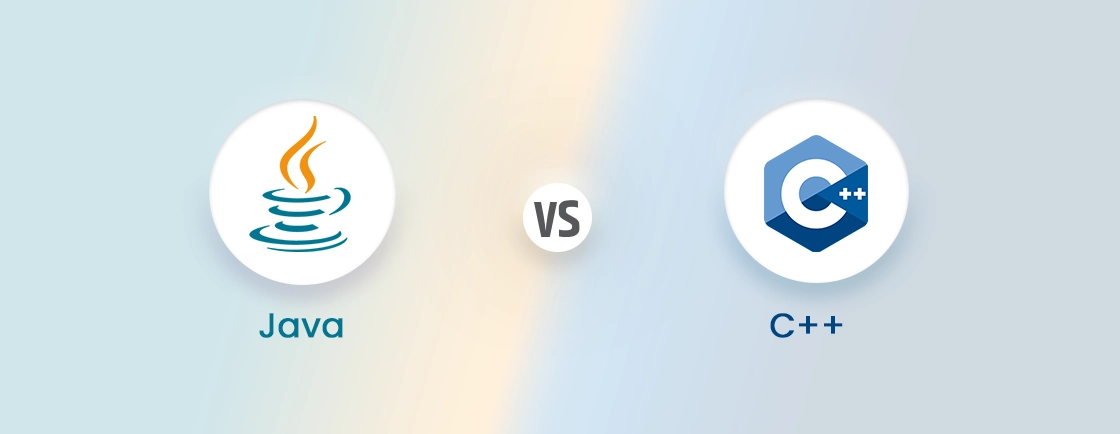Table of Contents
When creating a new website, you first need to consider the CMS, i.e., Content Management System. Now, with respect to that, the first name that comes to mind is WordPress. But the choice doesn’t end there. The next step for the web developers is to choose WordPress.com vs WordPress.org (or regular WordPress).
Although these two alternatives may sound similar, there are quite a lot of differences between them. From pricing to hosting and even the support structure, WordPress.com and WordPress.org vary from each other quite significantly.
Although a WordPress development company can create high-quality websites with both of these options, choosing between them will be on you. And this choice will be consequential. So we have created this guide to help you understand how they differ and which will be suitable for you.
So without further ado, let’s start.
What is WordPress.org?
WordPress.org is the official website and community for the open-source content management system (CMS) called WordPress. It is a platform that allows users to create and manage websites and blogs. WordPress.org provides the software for free download, along with themes, plugins, and documentation.
This regular WordPress is a little different from WordPress.com, which is a commercial platform with hosting. With WordPress.org, users have more control over their websites as they can self-host it and have access to the underlying code for customization and advanced functionality.
The WordPress.org community is vibrant and active, with contributors from around the world continuously developing and improving the software. It has a vast repository of free and premium themes and plugins, allowing users to extend the functionality and design of their websites.
A few key features of WordPress.org:
- Free to download and use.
- Customizable themes for website design.
- Extensive library of plugins for added functionality.
- Ability to self-host and have full control over the website.
- An active and supportive community of developers and contributors.
- Scalable and suitable for small blogs to large websites.
- SEO-friendly with built-in optimization tools.
- Mobile-responsive designs for optimal viewing on any device.
Overall, this option is quite popular among WordPress developers. They use it for individuals, businesses, and organizations looking to create and manage their websites or blogs with a powerful and customizable CMS.
What is WordPress.com?
WordPress.com is a commercial website development platform that offers hosting and a simplified version of the WordPress CMS. It provides an all-in-one solution for creating and managing websites and blogs without the need for self-hosting or managing the underlying technical aspects.
With WordPress.com, users can create a website or blog quickly and easily without any knowledge of coding or server management. It offers a range of pre-designed themes and templates, which can be customized using a simplified interface. Customizing WordPress.com vs. WordPress.org is easier with a range of built-in features and plugins.
WordPress.com provides hosting for websites, ensuring they are secure, backed up, and optimized for performance. It takes care of software updates, security patches, and server maintenance, allowing users to focus on creating and managing their content.
Key features of WordPress.com:
- All-in-one platform for website creation and management.
- Hosting provided with security, backups, and maintenance handled.
- Pre-designed themes for quick customization.
- Premium plans offer custom domain names, increased storage, and more.
- Community features for interaction and networking.
- Access to support and customer assistance.
- Analytics and site statistics for tracking performance.
- Multilingual support for a global audience.
- Limited customization options compared to self-hosted WordPress.
WordPress development services use the ‘.com’ alternative as it offers premium plans (along with the free one) with additional benefits. These include custom domain names, increased storage, and access to premium themes and plugins.
Difference Between WordPress.com and WordPress.org
Although they share almost the same name, WordPress.com and WordPress.org can be a little different. So we have differentiated between them with respect to a variety of factors, including hosting, pricing, support, monetization, and more. Let’s start with hosting.
#1. Hosting
WordPress.com provides hosting as part of its service. Users do not need to search for a separate hosting provider or manage the hosting environment themselves. This platform takes care of server configuration, performance optimization, security measures, and server maintenance tasks.
But users have limited control over the hosting environment with WordPress.com. They cannot directly access or modify server configurations. That makes it less suitable for advanced users with specific hosting requirements.
On the other hand, WordPress.org is a self-hosted platform. So the users are responsible for finding and managing their own hosting provider. They have the freedom to choose a hosting solution that meets their specific needs and requirements.
There is a reason why experts prefer .org for their customers. Users have full control over their hosting environment, including server configuration, resource allocation, and security measures. They can select a hosting provider that aligns with their performance, security, and scalability preferences.
Verdict: WordPress.org offers more control and options for hosting. But WordPress.com provides convenience for users who prefer a streamlined experience.
#2. Pricing
WordPress.com offers a free plan with limited features. It includes basic hosting, a subdomain (e.g., yoursite.wordpress.com), and a selection of pre-designed themes. However, this plan has limitations on customization and monetization options.
But it also has several premium plans with additional features and customization options, and one of the best plans is WordPress VIP. These plans have different pricing tiers, offering benefits such as custom domain names, more storage space, and advanced design options.
On the other hand, WordPress.org, or simply WordPress, is free to download and use. But the users need to pay for their own hosting service, and the cost can vary depending on the chosen hosting provider and plan. The WordPress website development costs also include premium themes, plugins, domain registration, and other customizations. These costs can vary depending on the user’s requirements and preferences.
Verdict: WordPress.org provides more flexibility in terms of pricing, as users can choose their own hosting provider. WordPress.com offers more straightforward pricing options with bundled hosting.
#3. Customizations
WordPress.com offers a selection of pre-designed themes that users can choose from. These themes can be customized to a certain extent, such as modifying colors, fonts, and layouts. However, customization options are limited compared to self-hosted WordPress sites.
But this version of WordPress enforces restrictions on the use of third-party plugins. Users can only install and use the plugins available in the WordPress.com plugin directory. That restricts the ability to add advanced functionalities or use specific plugins that are not supported.
On the other hand, WordPress.org provides users with complete control over customization. Users have access to the underlying code, allowing for extensive modifications and customization possibilities.
Users can choose from a vast array of free and premium themes or create their own. Themes can be customized extensively, including modifying code, design elements, and layout structures. With self-hosted WordPress, users have the freedom to choose the best plugin from the extensive WordPress plugin directory or develop their own custom plugins. This allows for adding advanced functionalities and tailored solutions. You can even go for WordPress plugin development services if you want a tailor-made plugin.
Verdict: Customizing on WordPress.com vs WordPress.org can be a little tricky. But the latter wins for customization options, as it allows the WordPress experts full control and flexibility to tailor the website to specific needs. WordPress.com is suitable for users who prefer simplicity and don’t require extensive customization.
#4. Maintenance
WordPress.com takes care of core software updates automatically. Users do not need to update the WordPress software manually. It handles server maintenance tasks like hardware upgrades, security patches, and performance optimization.
Moreover, WordPress.com implements security measures to protect websites hosted on their platform. That includes monitoring for vulnerabilities and mitigating potential risks.
On the contrary, with WordPress.org, users are responsible for manually updating the software when new versions are released. It includes updating the core software, themes, and plugins. WordPress programmers need to manage server maintenance tasks such as server updates, security patches, and performance optimization. That may require technical knowledge or assistance from a hosting provider.
Verdict: WordPress.org requires more effort for maintenance, making it suitable for users who prefer hands-on control. WordPress.com relieves users from maintenance tasks, making it more convenient.
#5. Back-up & Storage
WordPress.com automatically handles website backups. Users do not need to manually perform backups or set up backup plugins. The amount of storage space available to users is determined by the plan they choose. Free plans typically have limited storage, while premium plans offer more storage capacity.
Since WordPress.org is self-hosted, the WordPress web development company will have to manage their own website backups. That can be done through various methods, like using backup plugins or utilizing backup services provided by their hosting provider. Plus, they have more flexibility in terms of storage allocation. The amount of storage available depends on the hosting plan and provider chosen by the user.
Verdict: WordPress.com’s built-in backup and storage features provide simplicity and peace of mind for users who want a hassle-free experience. But WordPress.org’s storage and backup depend on the hosting service you choose.
#6. Monetization
WordPress.com has its own advertising program called WordAds. However, users need to meet certain eligibility requirements, such as having a custom domain and meeting traffic thresholds, to qualify for WordAds. Free plan users may have WordPress.com ads displayed on their sites.
But there are some limitations on the direct monetization options for the free plan users. They will face some restrictions on using external advertising networks or implementing certain monetization methods.
With WordPress.org, users have complete freedom to monetize their websites in any way they choose. They can use advertising networks of their choice, implement affiliate marketing, sell products or services, and explore various revenue-generating methods. Plus, WordPress.org offers extensive e-commerce capabilities through plugins like WooCommerce. That lets the users create and manage online stores with custom product catalogs, payment gateways, and inventory management.
Verdict: When it comes to WordPress.com vs WordPress.org for monetization, the latter offers more flexibility. That makes it suitable for users who have specific revenue generation goals. WordPress.com is more restrictive in monetization options.
#7. Support
WordPress.com provides customer support to users who have premium plans. Users can reach out to WordPress.com’s support team for assistance with technical issues, account management, and general inquiries. It offers a comprehensive knowledge base with documentation, tutorials, and guides. That helps users navigate the platform and troubleshoot common issues.
Moreover, there is a community forum where WordPress.com users can interact with each other. They can ask questions and seek help from fellow users.
WordPress.org doesn’t have a dedicated support team. So the users have to rely heavily on its vast and active community for support.
Since millions of websites widely use WordPress.org, there are numerous third-party resources available. That includes tutorials, blogs, and courses, offering support and guidance for users at various skill levels.
Verdict: WordPress.org’s community support is valuable for users who prefer a collaborative approach and have a DIY mindset. WordPress.com’s customer support offers more direct assistance, making it ideal for users who prefer personalized help.
As a whole, WordPress.com vs WordPress.org can be a difficult choice to make. The former is recommended for users who prefer a hassle-free experience and simpler customization options. Plus, they don’t have to deal with hosting and maintenance tasks. WordPress.com is suitable for personal blogs, small businesses, and individuals who prioritize convenience and ease of use.
WordPress.org is recommended for users who value complete control, extensive customization options, and have technical expertise to manage their own hosting and maintenance. It is suitable for businesses, developers, and those with specific customization and monetization needs. For those who want a custom, professional website without the hassle of managing it themselves, connect with a professional WordPress development services is an ideal solution.
WordPress.com vs WordPress.org – Comparison Table
| Factors | WordPress.com | WordPress.org |
|---|---|---|
| Pricing | Along with the free plan, WordPress.com offers a range of paid premium plans, from $4 to $45 per month (if billed yearly). | Although WordPress.org is free to install and use, you’ll have to pay for the hosting provider. (plus, the premium themes and plugins) |
| Hosting | WordPress.com is a managed hosting platform. So you don’t have to look for third-party hosting. | WordPress.org is a self-hosted platform. So you will have to find the best WordPress hosting provider for your website. |
| Learning Curve | Beginner-friendly with a simplified interface. | More technical knowledge may be required for setup and management. |
| Security | WordPress.com includes automatic security measures along with updates, backups, and free domain SSL. | With WordPress.org, you are in charge of the security of your website. It will largely depend on the hosting plan. |
| Performance | It includes unlimited bandwidth and traffic along with CDN. So the websites are automatically optimized for outstanding performance and server maintenance. | Like security, you are in charge of the performance of the website. It will largely depend on the hosting plan. |
| Themes & Plugins | Limited selection of pre-designed themes and restricted plugin usage. | Full access to a wide range of free and premium themes & plugins for customization. |
| Monetization | Limited monetization options. But you are eligible for the WordAds program. | Complete freedom to monetize websites using various methods. |
| Site Ownership Rights | WordPress.com retains some control and ownership over the website. | Users have complete ownership and control over their websites. |
| Support | Dedicated support team is available for premium plan users, along with community forums. | Community-based support, extensive documentation, and third-party resources. |
Conclusion
Although you may conclude WordPress.com vs WordPress.org with just paid and free, the differentiation goes a little deeper. When you go to a WordPress development company with your website requirements, one of the first topics of discussion is regarding WordPress.com and WordPress.org. More specifically, which one would be suitable for you?
Well, WordPress.org is free, and WordPress.com has free and paid plans. But unlike the former, the latter offers built-in hosting. Moreover, WordPress.org offers more customizability and complete ownership of the website. Another significant difference is regarding the support offered by the platforms. While WordPress.org relies on a community of contributors and developers along with documentation, WordPress.com has a dedicated support team that can help you with any issue with your website. Now, if you want a new website, whether it’s with WordPress.com or WordPress.org, hire WordPress developers today!
FAQs Related to WordPress.com vs WordPress.org
Can I use custom themes and plugins with WordPress.com?
WordPress.com has limitations on custom themes and plugins. Users can only choose from a selection of pre-designed themes and use specific plugins available in the WordPress.com plugin directory. WordPress.org allows full access to a wide range of themes and plugins for customization.
Which platform is better for e-commerce, WordPress.com or WordPress.org?
WordPress.org is generally preferred for e-commerce due to its extensive plugin options, such as WooCommerce, which allows users to create and manage online stores. WordPress.com offers some e-commerce features but with limitations compared to WordPress.org.
Can I switch from WordPress.com to WordPress.org or vice versa?
Yes, it is possible to migrate from WordPress.com to WordPress.org by exporting your content and importing it into a self-hosted WordPress site. However, the process may involve some complexities. Moving from WordPress.org to WordPress.com can also be done by following the specific migration steps provided by WordPress.com. We recommend you opt for our WordPress migration services for the same.
Compare the best tech side by side.
Our in-depth comparisons help you see features, pros & cons, and choose the right tools confidently.





